When Matt McCoy made plans to marry the love of his life this week, he envisioned the ceremony as the joyous culmination of a four-year relationship.
But in the back of his mind, McCoy said, he wasn’t able to stop thinking about whether his same-sex marriage to Cole Bishop on New Year’s Eve would still be protected under a new president.
The 42-year-old Canton resident is among a number of people in the LGBTQIA+ community anxiously awaiting what an incoming Donald Trump presidency will mean for their rights — from adoption protections to the universal recognition of same-sex marriages.
“We had already set our date before the election. But once the results came in, we were definitely happy we were doing it before Trump is inaugurated,” McCoy said. “We even said we would have gone to the courthouse before, if our wedding date was after [his inauguration].”
The Baltimore Banner thanks its sponsors. Become one.
Trump’s public views on same-sex marriage and other rights have varied throughout the years, so it may be difficult to know what may change immediately and whether he’ll adopt the harder line taken by some in his party.
“I’m for traditional marriage,” Trump told CNN in 2015. “It is changing rapidly.” But in 2016, days after being elected president, Trump told “60 Minutes” that he was “fine” with same-sex marriage.
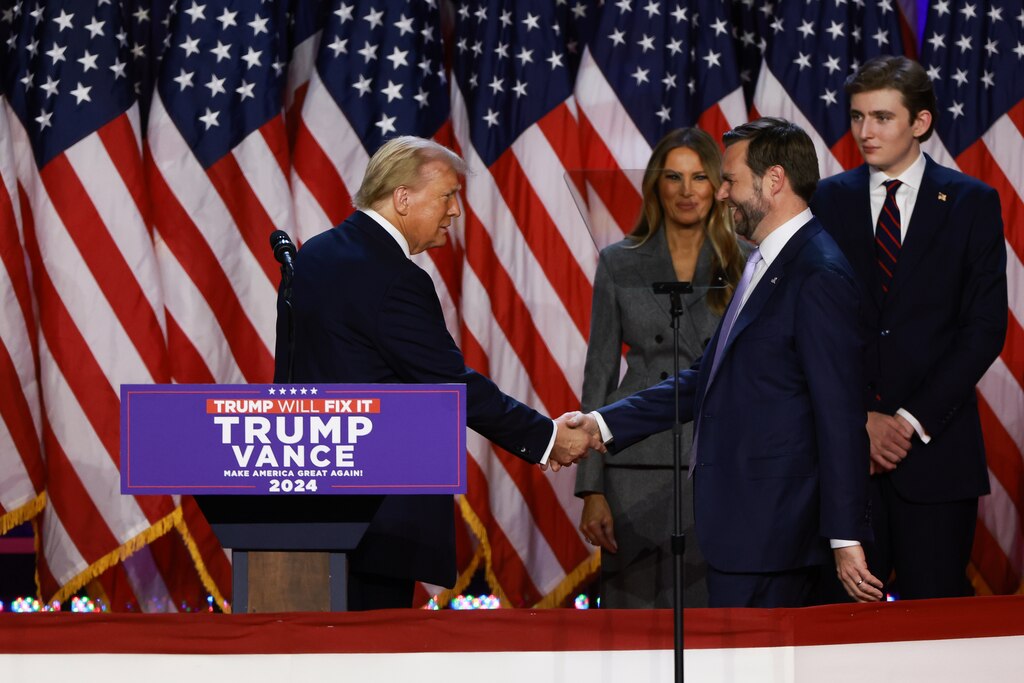
The 2024 Republican Party platform promised to “Empower American Families” by promoting “a Culture that values the Sanctity of Marriage, the blessings of childhood, the foundational role of families, and supports working parents. We will end policies that punish families.”
Trump’s vice president, JD Vance, has said there should be no special legal protection for LGBTQIA+ people against discrimination. Vance has also promised to vote against bills seeking to codify the right to marry for same-sex couples.
Trump’s campaign and his party have taken aim particularly at the rights for transgender people. “Let me state this clearly: There are only two genders,” Georgia Rep. Marjorie Taylor Greene said at the GOP convention last summer. Wisconsin Sen. Ron Johnson and Michigan Rep. John James were among those federal legislators who said transgender women should not be competing in women’s sports.
The Baltimore Banner thanks its sponsors. Become one.
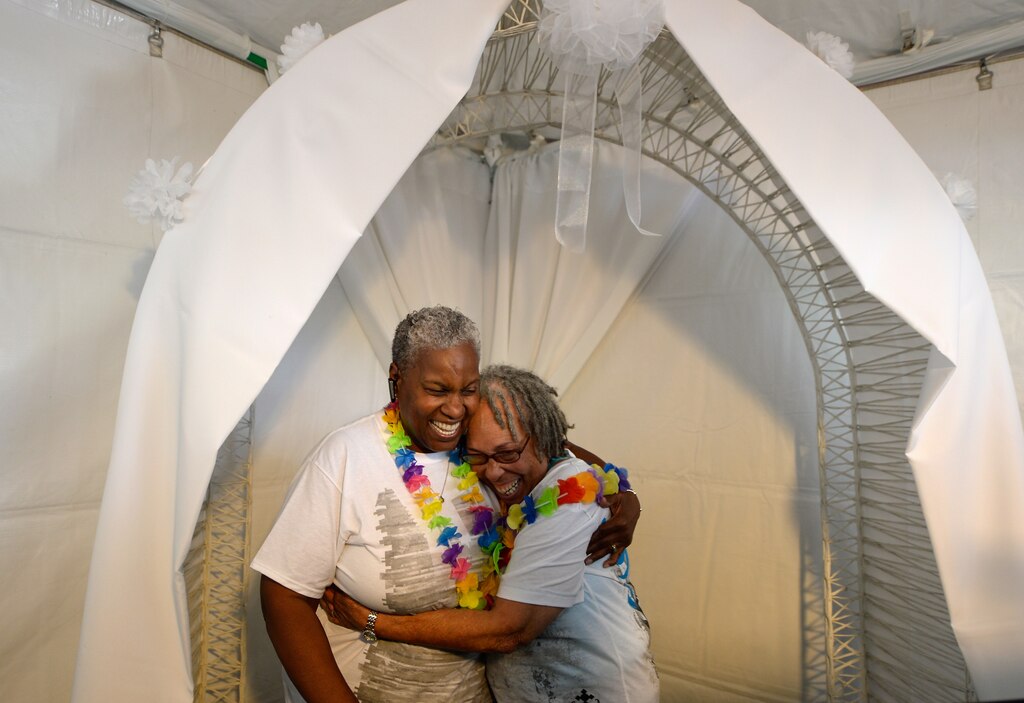
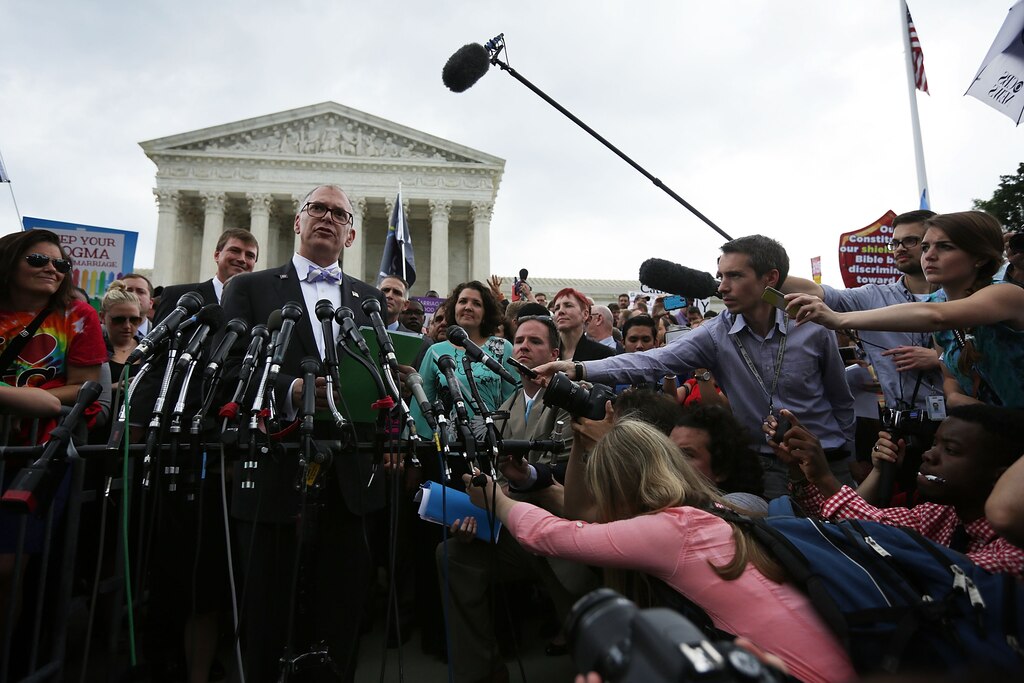
Human rights watch groups, advocacy organizations and civil rights organizations alike have criticized Trump and his allies for their approach to LGBTQIA+ rights. In response, community members and activists said getting married and establishing other legal protections are some of the new ways the LGBTQIA+ community should pursue now to protect their rights.
Before the 2015 Supreme Court decision in Obergefell v. Hodges that legalized same-sex marriage nationwide, couples traveled to other states like Hawaii, Massachusetts and Connecticut to get married. (Maryland legalized same-sex marriage by popular vote in 2012.) But those marriages at the time could still be ignored in states that did not recognize the marriages. This created a myriad of obstacles for couples pursuing adoptions, buying property or even being allowed to visit their spouses in the hospital.
At Club Car, a queer bar and lounge in Station North, co-owner Ryan Haase said he received several inquiries from same-sex couples looking to tie the knot on New Year’s Eve. Securing marriage licenses in time for the holiday, however, proved difficult, so the couples will marry on Jan. 11, the first anniversary of the Baltimore bar.
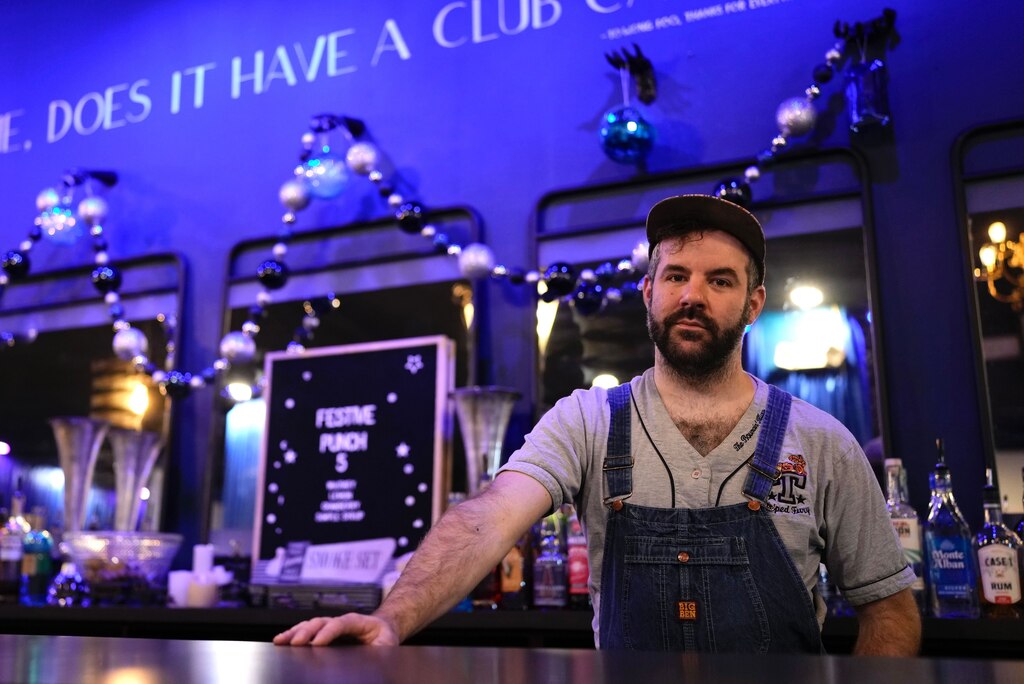
“Same-sex marriage is both a right and privilege that we need to celebrate and protect,” Haase said. “We want to encourage and support anyone in our community who wants to get married prior to any impending policy changes that might occur over the next four years,” he said.
“Strength by numbers is the game, and support, love and encouragement is the weapon,” he added.
The Baltimore Banner thanks its sponsors. Become one.
Matthew Lengel said he saw the writing on the wall and got married to his husband in September in a Baltimore courthouse amid the middle of a hard-fought presidential election.
“The potential instability definitively may have influenced us to get married sooner than later. ... I am happy it happened before this administration takes office,” he said of his marriage.
Lauren Pruitt, legal director of FreeState Justice, said it is important for LGBTQIA+ people to be proactive in securing their legal protections.
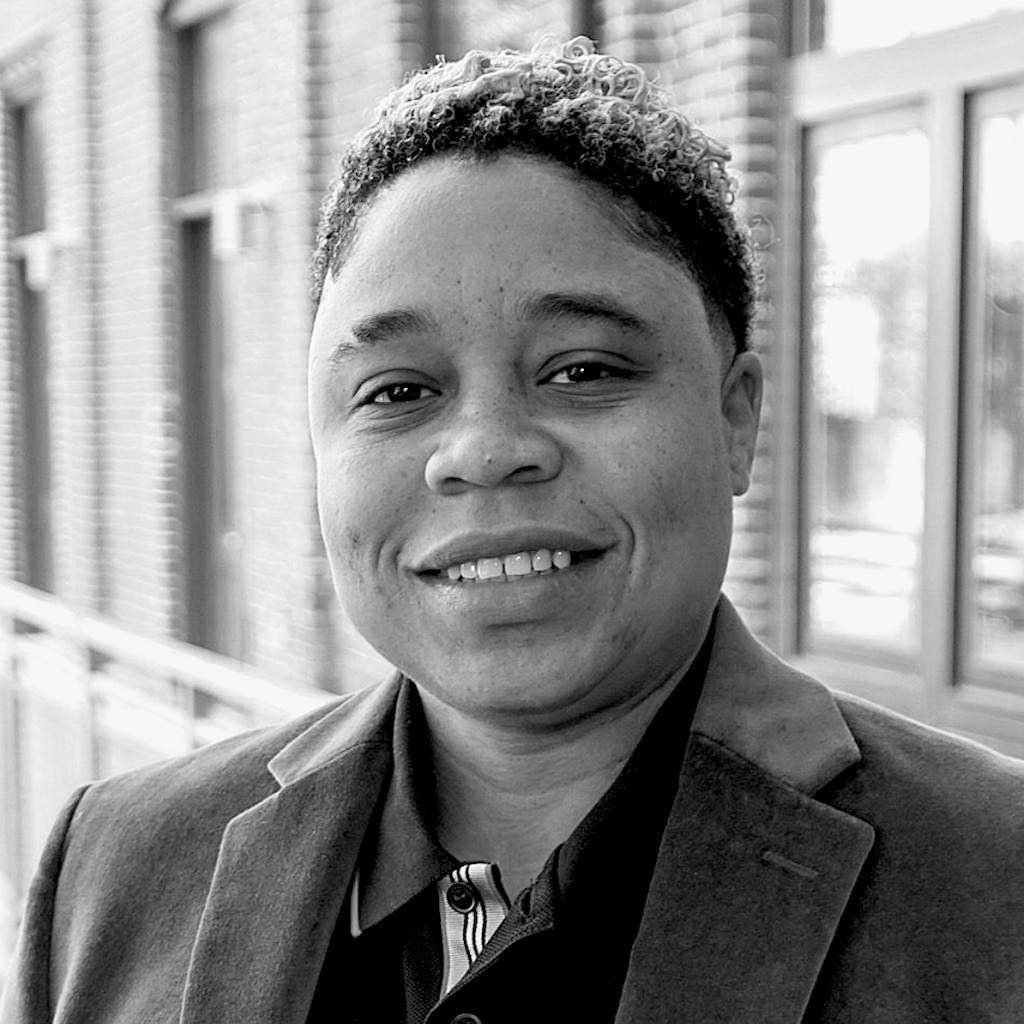
“In Maryland, this could mean filing name change petitions for their name of common use, petitioning the court to seal prior name changes from the public record, and updating all identity documents to ensure they reflect the correct name and gender,” said Pruitt, whose Baltimore-based legal advocacy organization helps low-income LGBTQ Marylanders.
“For same-gender parents, the option of second-parent adoption can provide a significant sense of security and legal recognition,” Pruitt said. “It’s also important for same-gender couples to ensure their estate planning documents are legally valid and up to date, including their advance directives, financial powers of attorney, and wills.”
The Baltimore Banner thanks its sponsors. Become one.
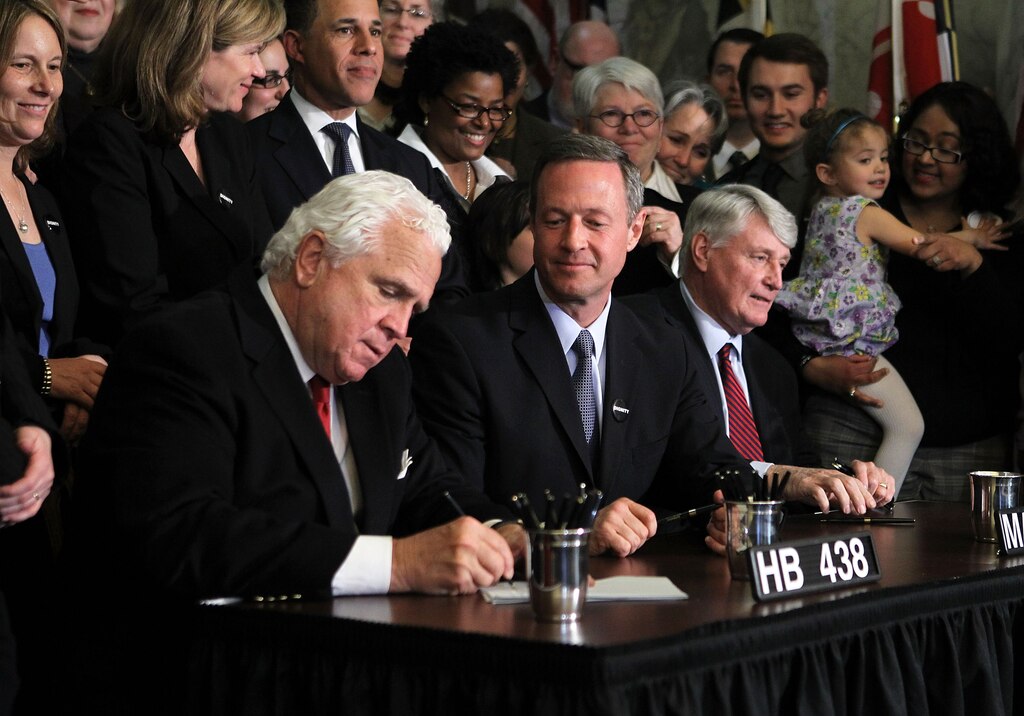
Byron E. Macfarlane, register of wills for Howard County, who is also gay, said there is a general sense of relief for many in the community from living in liberal-leaning Maryland. But there’s also a sense of urgency to look into what additional protections are still needed, he said.
”We can’t rest on our laurels,” Macfarlane said. “Even in a relatively safe state, the mood is ‘shields up, red alert,’ and I’m confident we’ll take meaningful action in coming months.”
Macfarlane said he encourages any LGBTQIA+ couples who aren’t ready to marry, but are partnered, to consider registering with their local register of wills.
“It affords couples some basic protections in case one of them passes away, including an exemption from the state’s 10% inheritance tax,” he said.
Lee Carpenter, an attorney and principal at the law firm Offit Kurman, says the surge of new LGBTQIA+ clients since the election has been unlike anything he’s seen.
The Baltimore Banner thanks its sponsors. Become one.
“People are very afraid,” he said.
Potential clients, according to Carpenter, fear the right to same-sex marriage will be rolled back, particularly federally. They also worry legal options, such as second-parent adoptions, may no longer be available. And some are considering moving to other countries with more stable protections for LGBTQ individuals, Carpenter added.
Carpenter advises unmarried couples who are committed to each other to get married.
“The hope is that, even if the right to same-sex marriage is rescinded, marriages that are already legally recognized will remain intact,” Carpenter said. “For couples who aren’t ready to tie the knot, Maryland has a new domestic-partnership registry, which can also be helpful.”
Carpenter also recommends creating a “defensive” estate plan — one that replicates and affirms as many of the legal benefits of marriage as possible.
The Baltimore Banner thanks its sponsors. Become one.
“Married couples enjoy many important rights, such as the ability to make medical decisions for each other, settle a deceased spouse’s estate, and inherit a portion of each other’s assets,” he said.
McCoy and his husband, who held their ceremony at a waterfront venue in Canton, say they are also concerned about having children under the Trump administration, which they feel will be hostile to the LGBTQIA+ community.
“We have been researching surrogacy agencies both inside and outside the U.S.,” said McCoy, who wants both their names listed on their children’s birth certificates.
“We haven’t set up a will or power of attorney yet. But those are definitely things we will be getting done once the wedding is over,” McCoy said.





Comments
Welcome to The Banner's subscriber-only commenting community. Please review our community guidelines.